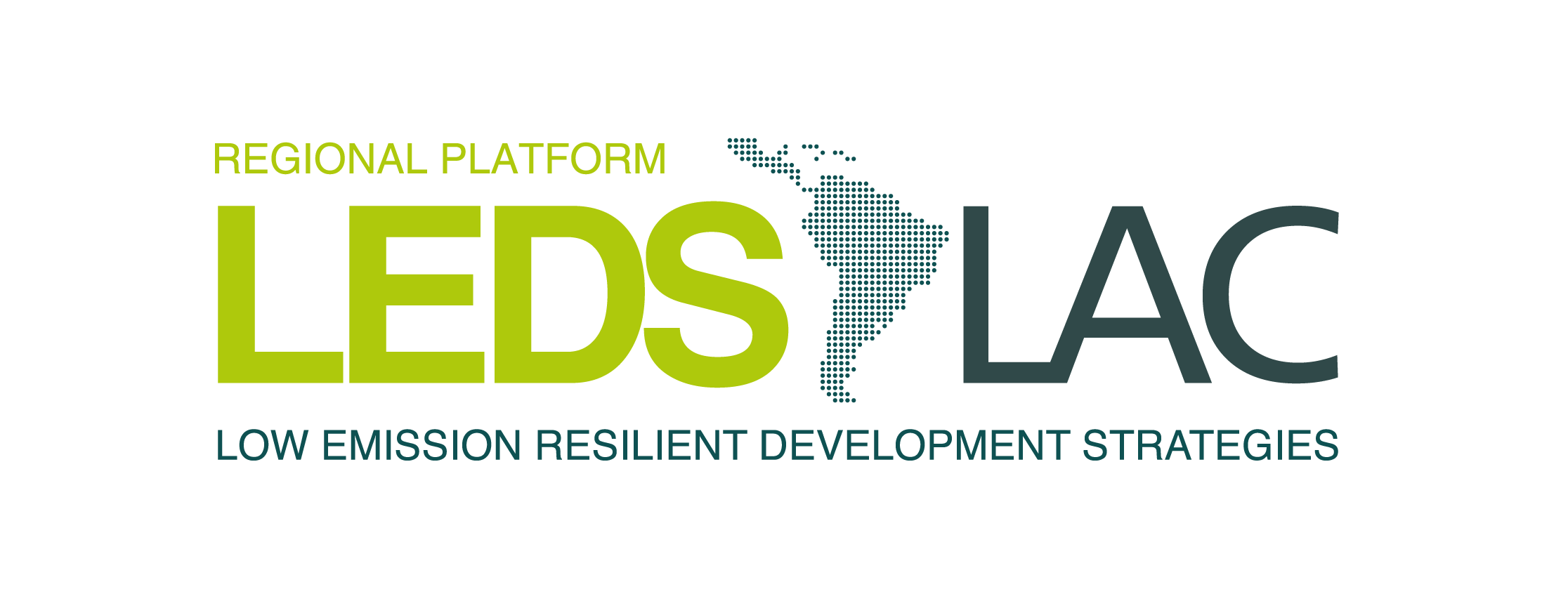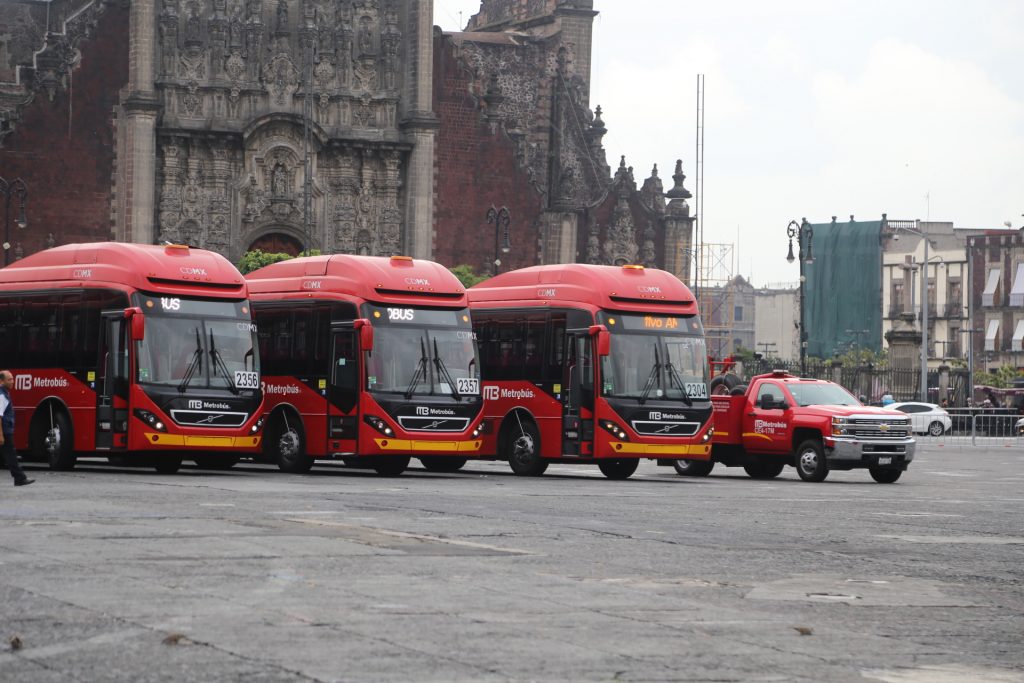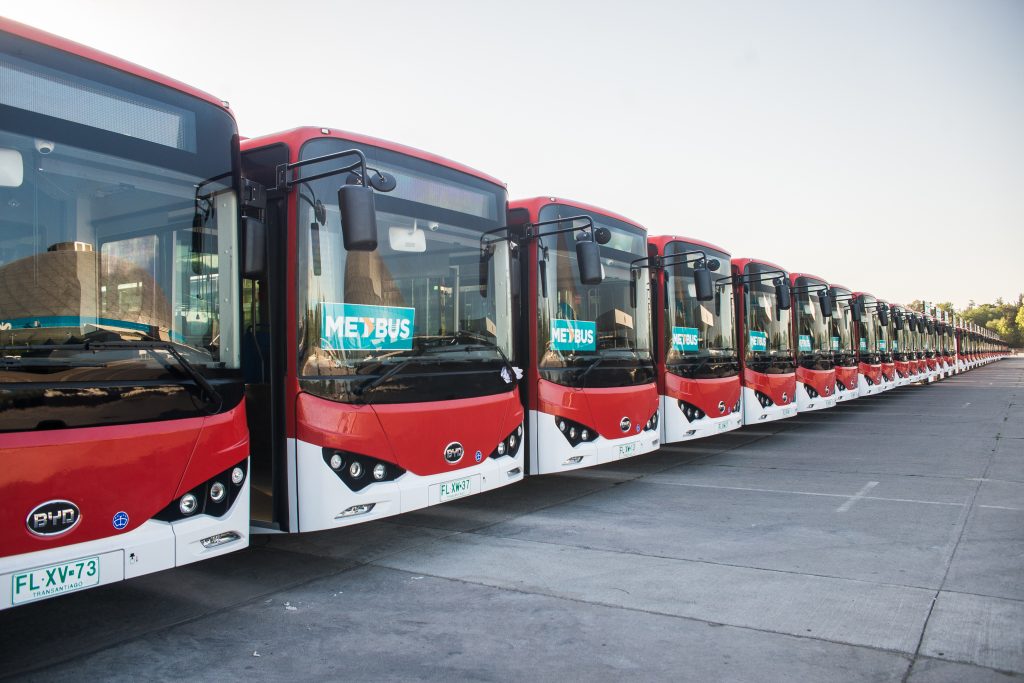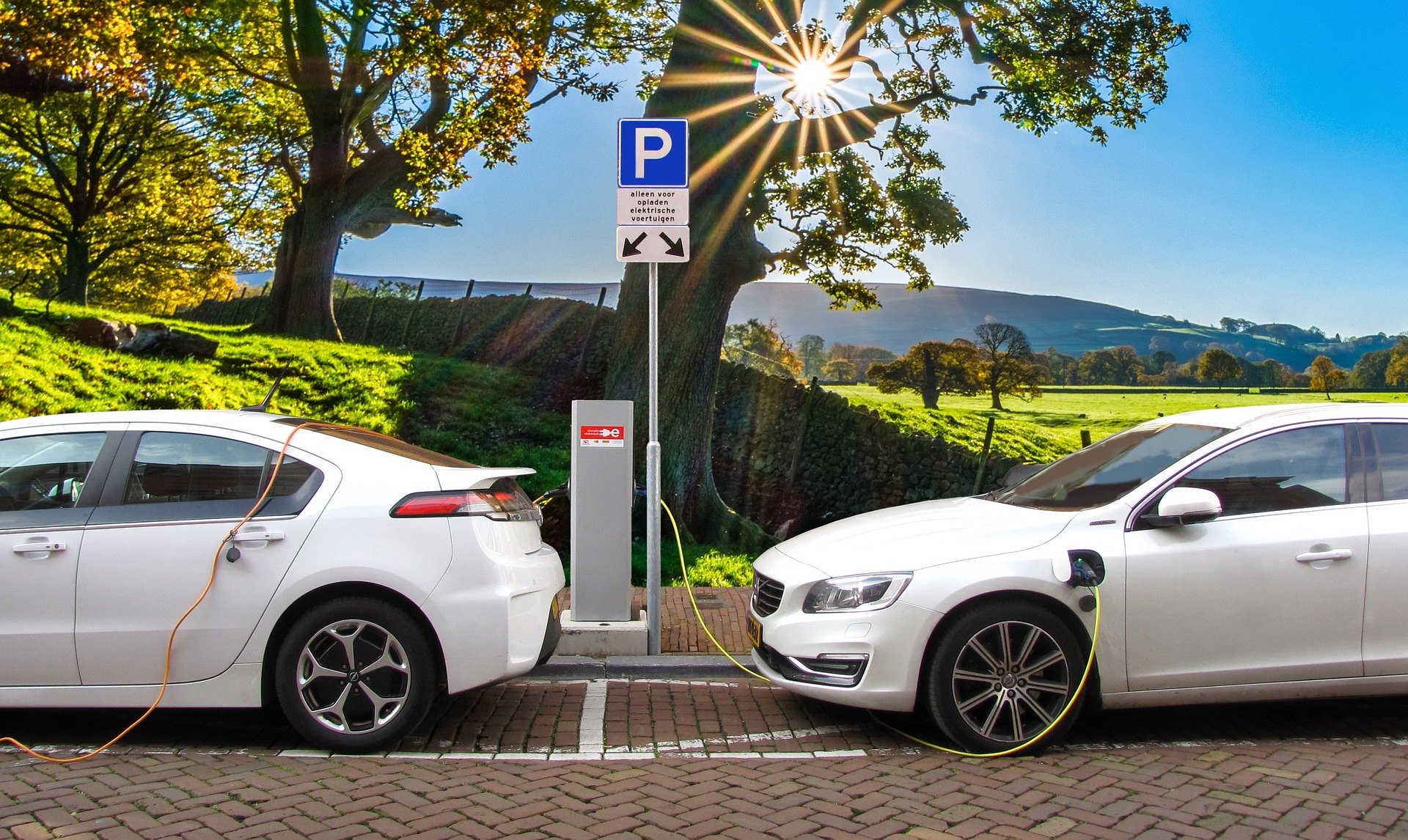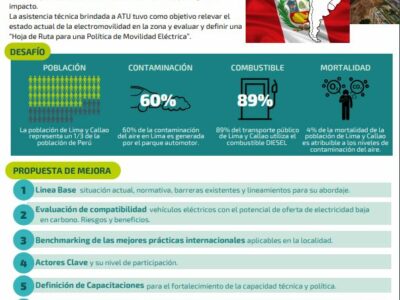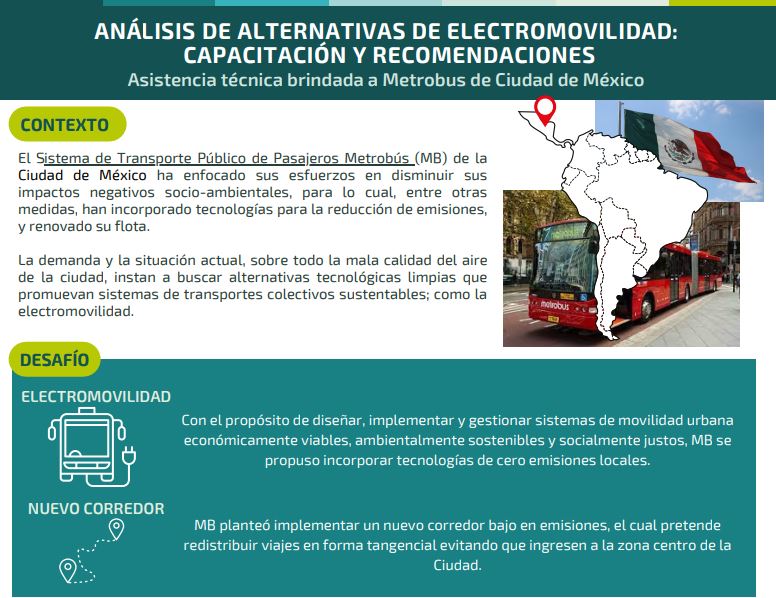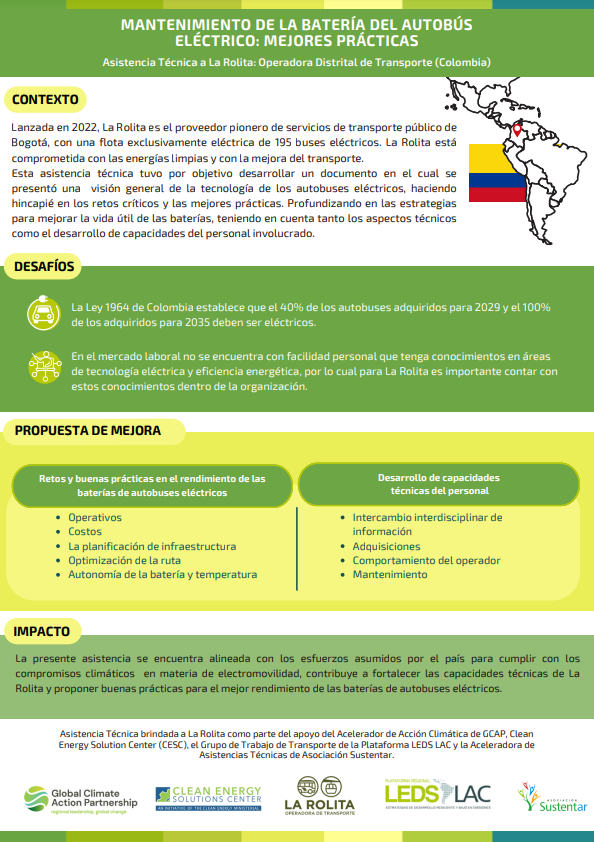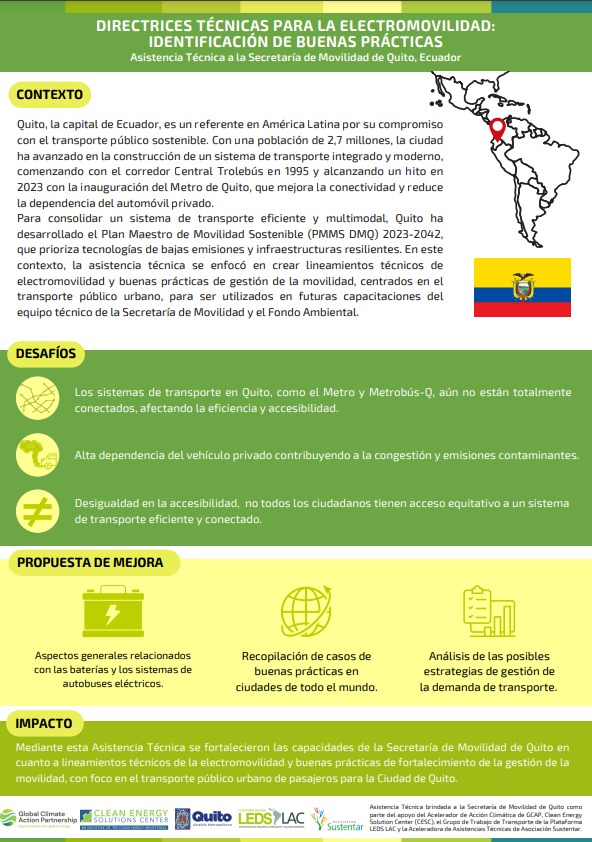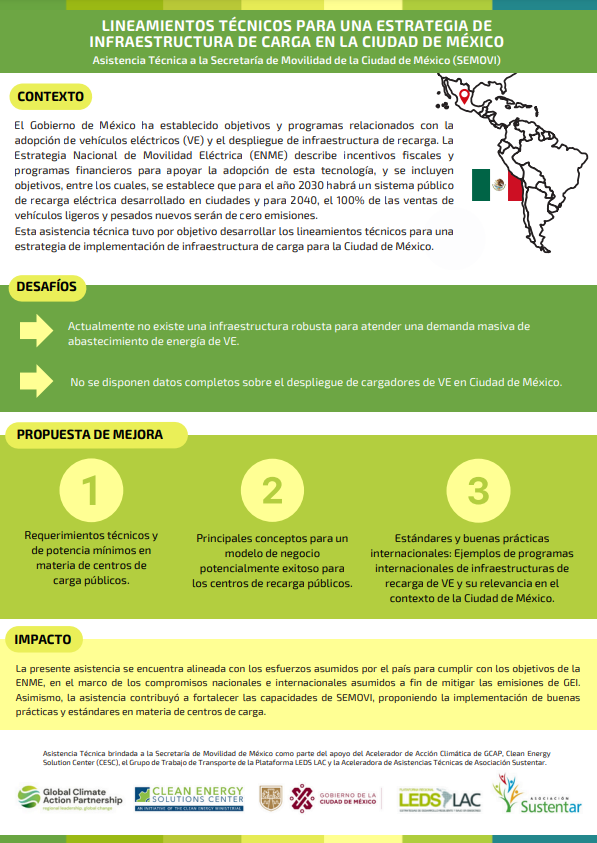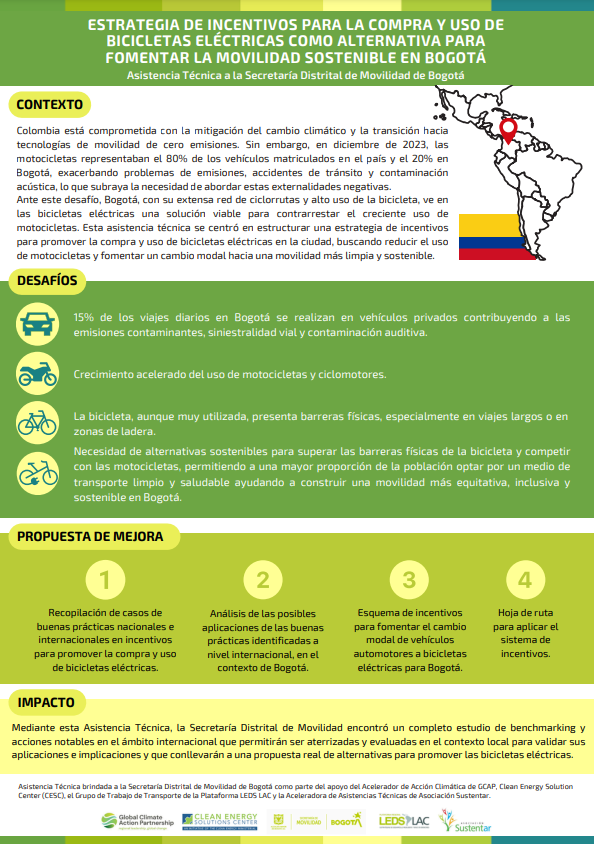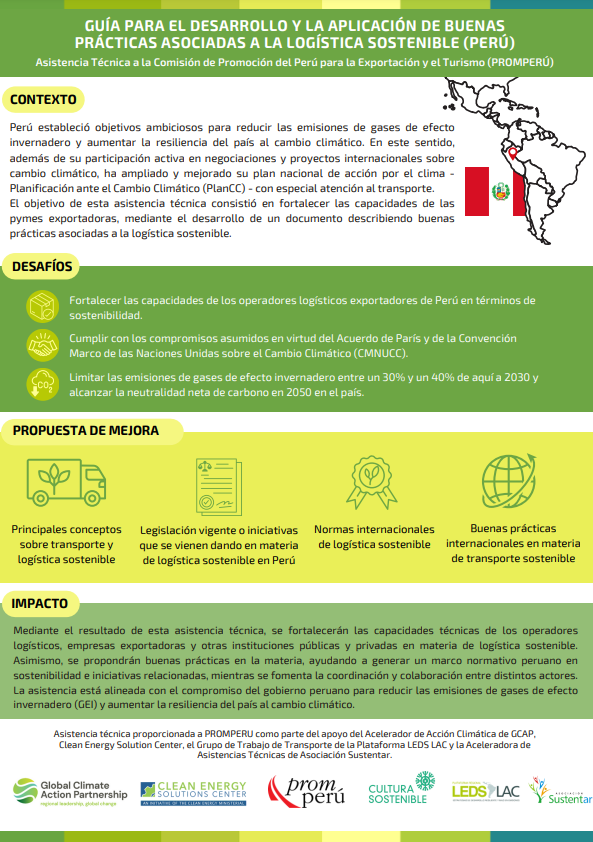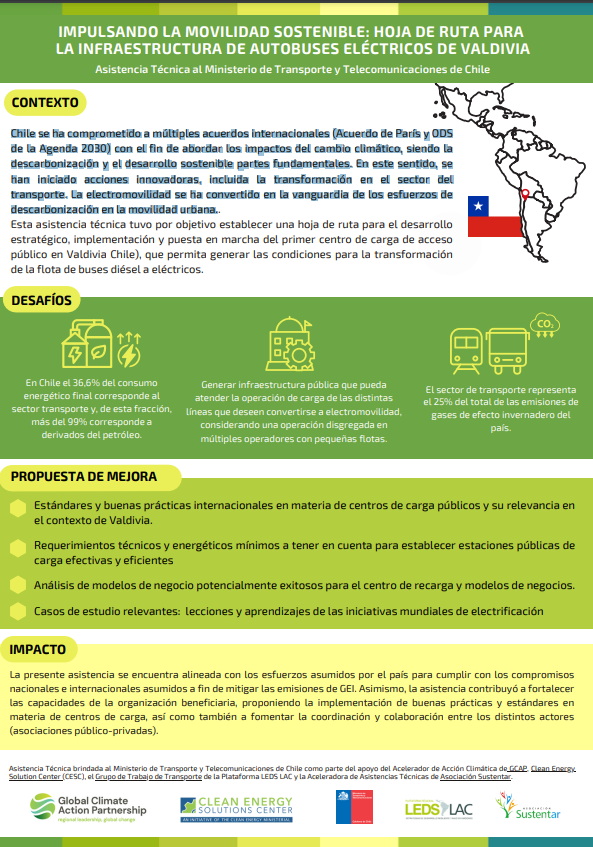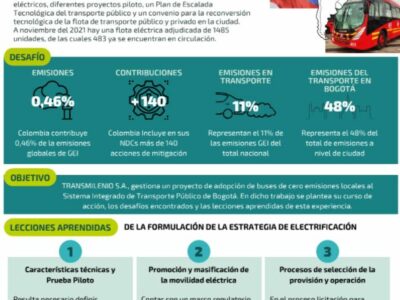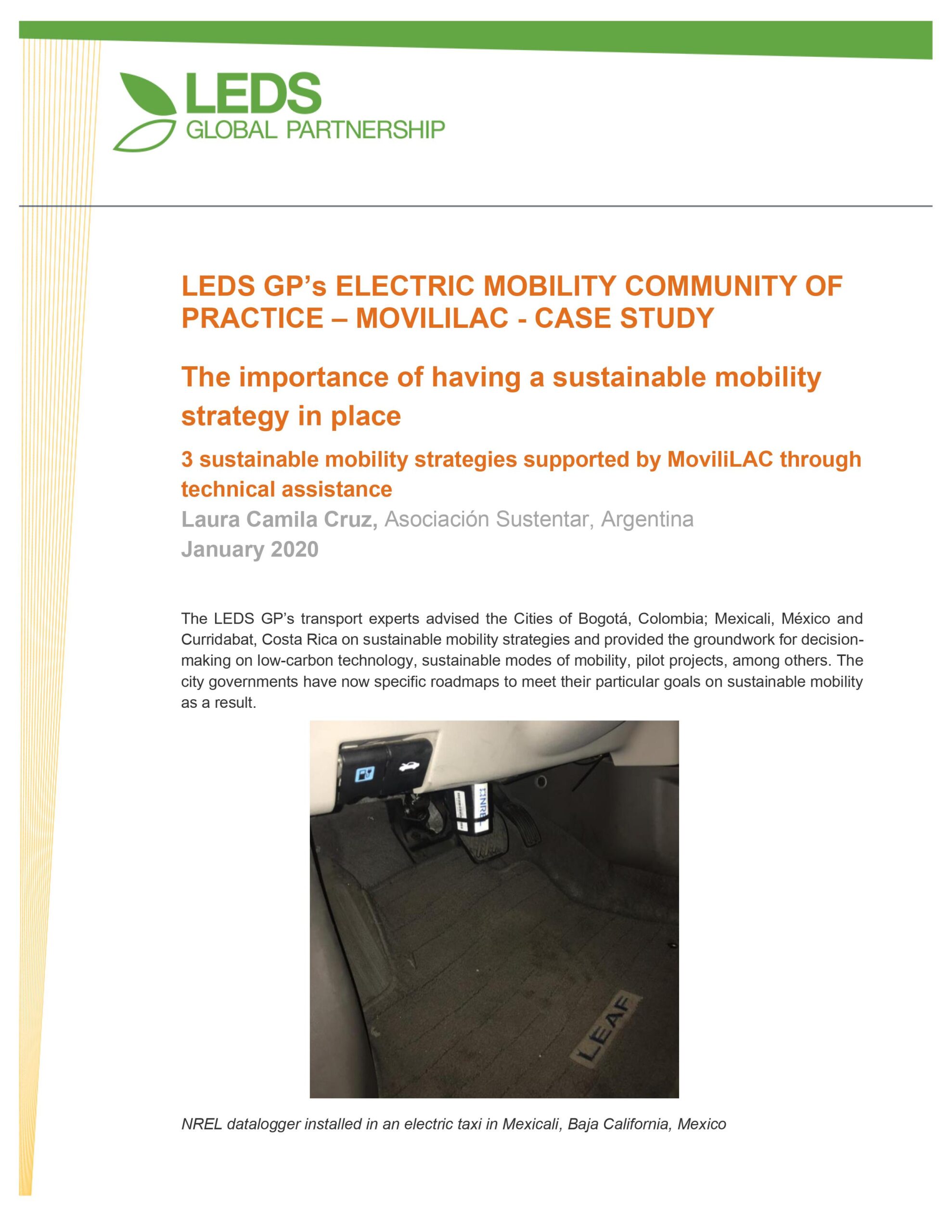Electric Mobility Community of Practice
The Transportation Community of Practice, in partnership with LEDS GP Regional Platforms, is building a resilient, low-emission transportation community globally, supporting champions and innovators, linking networks of low-emission transportation experts, and exploring opportunities for collaboration at the local and regional levels.
Join this Community of Practice
We invite all interested parties to join by completing the following through this survey
Presentation
In 2017, the Transportation Community of Practice, along with the. Global Climate Action Partnership - GCAP (formerly known as LEDS GP)LEDS LAC, the UNFCCC Regional Center and the Development Bank of Latin America (CAF) held an APEC-funded workshop focused on "Strengthening Energy Efficiency Policies in the Transport Sector". During this workshop, the region's interest in moving towards the transition to electric mobility was identified. As a result, the LEDS LAC TWG, in association with the Global Climate Action Partnership - GCAP (formerly known as LEDS GP) Electric Mobility Community of Practice began in 2018.
Target
The CoP seeks to involve transport experts in climate actions; assist countries in the design and implementation of sectoral climate action plans; and promote synergies and articulation among transport sector actors, in pursuit of the promotion of electrification in public transport.
The work of the CoP is a key mechanism for documenting and sharing case studies, training, peer-to-peer exchange, provision of advisory support and early assistance for electric mobility in the region.
Specific objectives
- Provide technical assistance to cities/countries that are champions to overcome barriers in their transition to electric mobility.
- Increase the visibility of transportation electrification initiatives and promote integration and synergies among professionals throughout the region.
- Deepening electric mobility issues to increase capacity and broaden reach within the region
Prioritized topics
- Electric mobility planning process
- Electrification of public transportation fleets
- Establishment of regulatory frameworks.
Electromobility as a low-emission transportation alternative
- 20-11-2019
- Madrid, Spain
- View recording
- Download materials
Who participates?
Participants include representatives from national governments, sub-national governments, academic institutions, NGOs, the private sector, consultants and journalists.
To date, the CoP has more than 167 members, from 15 countries in the region and 6 other countries:
- Germany
- Argentina
- Bolivia
- Brazil
- Chile
- Colombia
- Costa Rica
- Ecuador
- Denmark
- Guatemala
- Honduras
- Mexico
- Panama
- Paraguay
- Peru
- Dominican Republic
- Uruguay
- United States
- India
- United Kingdom
Activities
Webinars
- 9 y 10-11-2023
- View recording
- More information and materials
This event aimed to share outstanding experiences in the implementation of zero-emission buses in Latin America. It also sought to create a space to share information on national and international funding sources with representatives of public transportation systems, as well as to inform about the various government incentives aimed at reducing the total cost of ownership.
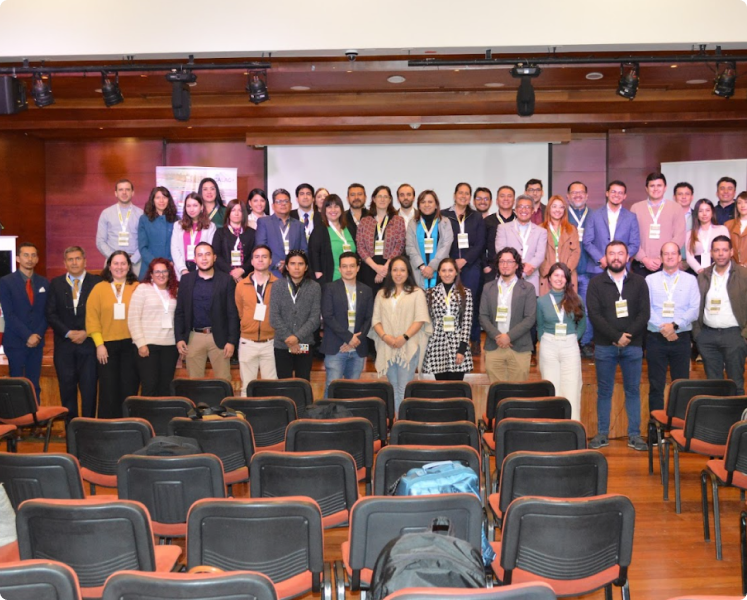
- 05-05-2021
The objective of the webinar was to present the agency's experiences, visions and strategies on the project to include electric vehicles in the fleet and to promote a space for discussion on the implementation of electromobility in the Metrobus to establish the guidelines for technological change in the region.
Carolina Chantrill, TWG coordinator, shared the results of the APEC case study on the lessons learned from planning the transition to electrification of the BRT system in Mexico City"..
- 22-04-2021
- View recording
- More information and materials
"The objective of this public webinar was to be able to highlight the economic, social and environmental benefits that can be generated by linking the energy and transportation sectors and transitioning to efficient systems based on electric vehicles and renewable energy. The speakers presented a recently published roadmap that sets out a wide range of sustainable mobility solutions. They discussed a concrete and practical process that allows local stakeholders and community leaders to jointly identify the best possible development pathway to advance both sectors through their integration. In turn, they discussed how they plan to further advance their work and what the implementation of the new strategy will look like in specific island, city and country contexts.
Examples from Peru and Mexico, concrete achievements and lessons learned in this area were presented as essential to achieve the Sustainable Development Goals in Latin America and worldwide. In particular, Carolina Chantrill, TWG coordinator, presented the lessons learned from the case study on the electrification pilot project in the Mexico City Metrobus".
Online exchange sessions
Workshop "Integrated sustainable electric mobility for urban cities".
- 10,11 12-07-2021
The workshop was organized within the APEC Project in collaboration with the LEDS LAC Transport Working Group. The main objectives of the workshop were to learn from experts on effective initiatives and collaboration of the transport and energy sectors, promote peer-to-peer learning within and across Latin America and the Caribbean (LAC) and Asia to advance the integration of the transport and energy sectors to deliver energy efficient mobility solutions.
The workshop lasted three days, with each session featuring a lecture by an expert on a specific electric mobility topic, followed by presentations by participants on successful and ongoing experiences in relation to electric micro mobility, light and heavy duty vehicles.
Closed workshop "Electric mobility in the context of a green recovery: towards the adoption of electric buses in LAC".
- 13, 14 y 16-10-2020
The objective of the workshop was to promote the exchange of experiences on the adoption of electric buses in LAC cities, in order to provide information and tools for the planning of electric mobility projects in public transportation and to promote a dialogue on the fundamental aspects for an effective implementation. The sessions were structured around the following focuses: Infrastructure and Technology, Financing and Articulation.
Online exchange "Transportation Sector: Visions to support economic recovery and climate action".
- 27-05-2020
The objective of the activity was to present to community members the rationale for developing long-term, climate action-oriented transportation strategies that contribute to short-term actions in post-Covid-19 economic recovery and resilience building. This presentation included the introduction of a new NREL technical assistance line to support local governments in formulating these strategies.
Online Exchange Presentation by the City of Curridabat, Costa Rica of the results of the CoP Technical Assistance
- 19-12-2019
The objective of the online session was to collaborate with the city of Curridabat on the work plan for the technical assistance received under the CoP, including sharing results, lessons learned and next steps with other local authorities and community members.
Online Exchange Presentation by the City of Mexicali, Mexico of the results of the CoP Technical Assistance
- 05-12-2019
The activity consisted of a presentation of the results of the technical assistance received by the city of Mexicali under the CoP, seeking to encourage other members of the community to request technical support in 2020.
Technical support to countries
Technical Assistance "Roadmap for an electric mobility policy in Lima and Callao, Peru". in Lima and Callao, Peru".
- August - October 2021
- Spanish
- Prepared by: Transportation Working Group (GTT); Urban Transportation Authority for Lima and Callao (ATU); Asociación Sustentar
Technical Assistance "Analysis of electromobility alternatives: training and recommendations".
- June - August 2021
- Spanish
- ICLEI; Grupo de Trabajo de Transporte (GTT); Metrobús de la Ciudad de México; Asociación Sustentar
Materials
Electric Bus Battery Maintenance: Best Practices
Electromobility technical guidelines: identification of best practices
Technical Guidelines for a Freight Infrastructure Strategy in Mexico City
Incentive Strategy for the Purchase and Use of Electric Bicycles as an Alternative to Promote Sustainable Mobility in Bogota
Urban Logistics in Peru
Promoting Sustainable Mobility: Roadmap for Valdivia's Electric Bus Infrastructure
Case Study "Lessons learned from a public transportation electrification experience in Bogota, Colombia".
- July - September 2021
- Spanish
- Transportation Working Group (TWG) of LEDS LAC and LEDS GP; Asociación Sustentar; Secretaría de Movilidad de Bogotá
LEDS GP's Electric Mobility Community of Practice - Case Study "The importance of having a sustainable mobility strategy in place: 3 sustainable mobility strategies supported by MoviliLAC through technical assistance".
- January, 2020
- English
- Transportation Working Group (TWG) and LEDS GP
Contact

